Radio from around the World by Kyle G. Brown
Le Pen Banned from 2027 Elections: Justice, or Judicial Conspiracy?
Tuesday, April 8, 2025
In a week of high political drama, far-right leader Marine Le Pen and her allies condemned the sentence she received last Monday for embezzling public funds as the culmination of a judicial witch hunt. Her protégé and National Rally President Jordan Bardella decried a “tyranny of judges.”

AFP / Reuters
Magistrates have since received death threats, and at least one judge is under police protection.
For illegally diverting European Parliament funds to the party, Le Pen was sentenced to four years in prison, two of which were suspended, and two years will be served outside of jail with an electronic bracelet.
I filed the report below for CBC Radio on April 6, after attending a pro Le Pen rally, as well as two others held by rival parties on the same day. Each camp claimed to be defending democracy…some more convincingly than others.
France Welcomes Ukrainians but Migrants from Africa and the Mid-East Sleep on the Streets
More than 4 million Ukrainians have fled their country since Russian troops invaded on February 24. Human Rights campaigners have praised the French government for the speed with which it set up a reception center with provisions for shelter, food and healthcare.
But they wonder why the authorities haven’t extended the same warm welcome to asylum-seekers from across Africa and the Middle East.
Many of them sleep on the streets after treacherous months-long journeys.
“There has been no welcoming system in place for exiles,” says Leo Kuroyanagi, of migrant rights group, Utopia 56. “Yet with Ukrainian refugees arriving, we see there’s a capacity to set up a system to give them housing and help. It’s been put in place for Ukrainians but not for people coming from other countries. So it feels like there’s an absence of political will and it is perhaps due to structural racism in the French asylum system.”
France’s Interior Ministry would not respond to repeated requests for comment.
For the radio report (below photo), I visited camps northeast of Paris where migrants have been living in a state of limbo for months. A short version of this report aired on CBC Radio on April 13, 2022.
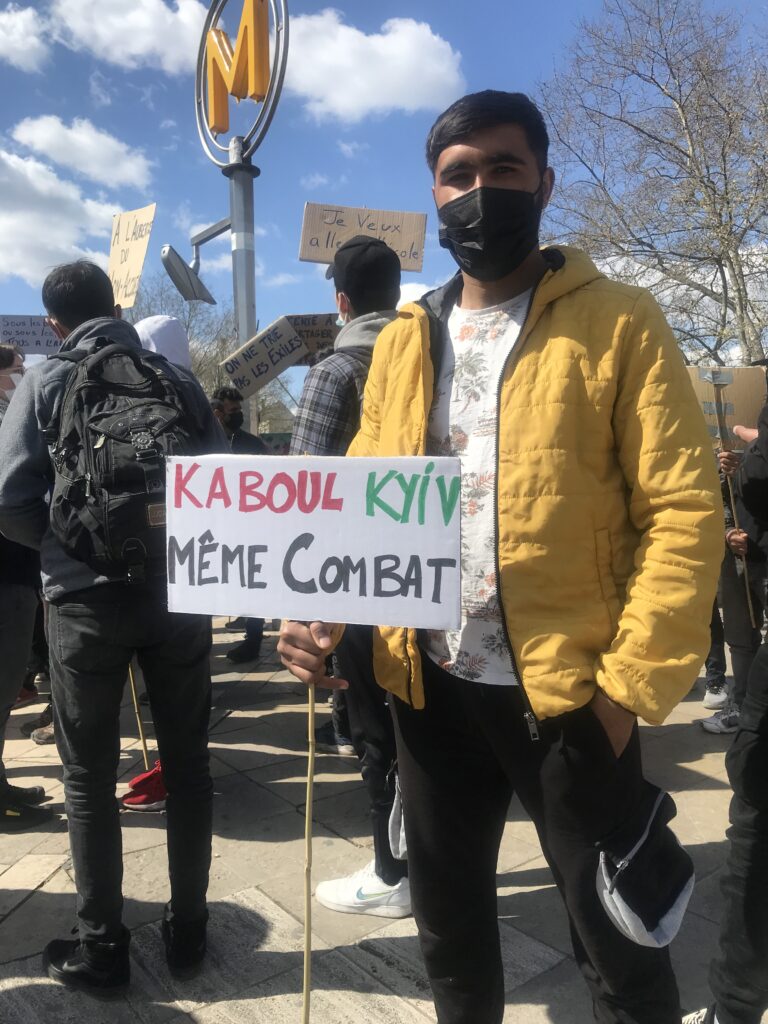
CHILE: STRUGGLING TO EMERGE FROM 50 YEARS OF NEOLIBERALISM
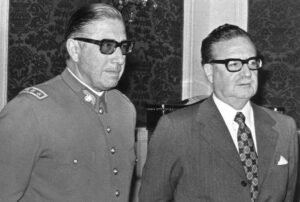
(Photo by AFP)
September 2023 marked the 50th anniversary of a bloody coup d’etat that toppled Chile’s socialist government in 1973. Led by General Augusto Pinochet, the military dictatorship that took power killed or “disappeared” more than 3,000 people over the next 17 years.
What is less well-known, is that ousted President Salvador Allende’s ambitious socialist programme was replaced by one of the earliest and most expansive neo-liberal experiments in the world.
“The neo-liberal policy starting in 1974 and ’75 could not have been carried out in Chile without a dictatorship,” said Raúl González, an economics professor at the Academic University of Christian Humanism in Santiago. “And this was due to the influence of a group called the ‘Chicago Boys.'”
Listen to this hour-long radio documentary, which aired October 16, 2023 on CBC’s Ideas programme.
CANADA’S SLAVERY SECRET
It’s common knowledge that runaway slaves found refuge in Canada. But few know that Africans and Indigenous peoples were bought, sold and exploited, right here, too. I investigate why slavery was allowed to continue for some 200 years, and yet be one of the least talked about aspects of our history.
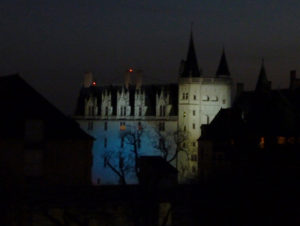
Part I: The whitewashing of 200 years of enslavement
Part One aired on CBC Radio’s IDEAS programme on June 28, 2018. It was the show’s most listened to episode of the year, and won an RTDNA award in 2019.
Part II: Slavery’s long shadow
The impact of 200 years enslavement in Canada
Is there a connection between the enslavement of African-Canadians and their overwhelming presence in the criminal justice system today? The United Nations has sounded the alarm on anti-black racism in Canada, stating it can be traced back to slavery and its legacy.
In Part 2 of this series on slavery in colonial Canada for CBC’s IDEAS programme, we explore the long-lasting ramifications of one of humanity’s most iniquitous institutions.
THE INVISIBLE PIRATES
Kenyan environmental groups and local fishermen say they are finding dead fish washed ashore, habitats damaged and equipment destroyed.
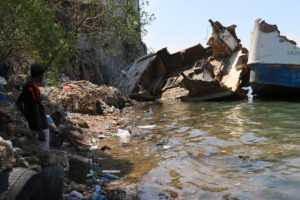
So-called ‘Phantom ships’ have been entering into East African countries’ territorial waters unannounced, and leaving with more than they declare.
Kenyan authorities have long lacked the means to do much about illegal fishing, but they hope a series of new measures will help them put an end to what is described as piracy and pillaging.
Click to listen to the first of three RFI radio reports.
Listen to Part II on how industrial fishers cook the books and under-report their catch.
In Part III, I board Greenpeace’s “Esperanza”, which tracks illegal fishers along the West African coast.
FISHERMEN TRY to FLEE FORCED LABOUR
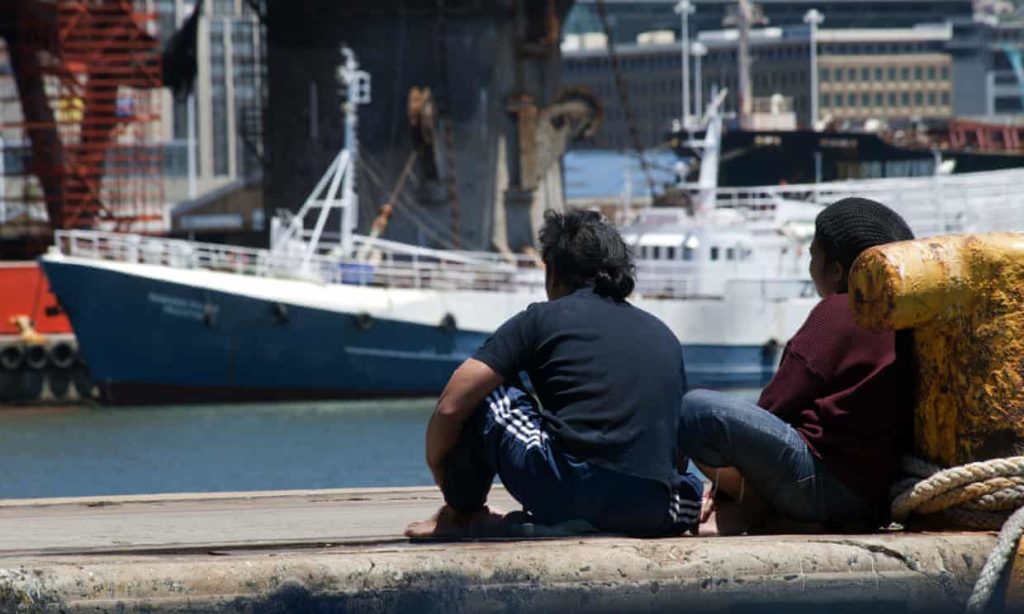
Rodger Bosch AFP/Getty
Cape Town, one of Africa’s busiest ports, receives all kinds of foreign vessels every day – from cargo ships to fishing boats. But increasingly, the small team that takes care of seafarers when they arrive, finds it is dealing with serious human rights abuses. Fishermen – mainly from Indonesia and the Philippines, complain of insufficient food and water; having to work up to 22-hour days, and suffering injuries which often go untreated.
This report aired on BBC World Service in August, 2016.
Read also: Bid for Freedom – Rescuing Trafficked fishermen as they dock in Cape Town
RADICAL WAY TO HOUSE THE HOMELESS
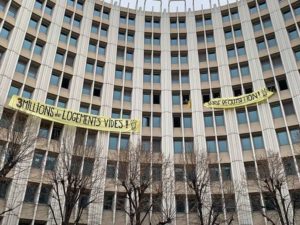
In a brazen move to help homeless families endure the cold winter, activists have taken over empty Paris office buildings and moved dozens of people in. Property-owners are alarmed. But the government’s response has been surprising. Listen to the CBC News report, which aired on Feb. 23, 2013.
DRAFTED BY A DICTATOR
Chile’s late dictator Augusto Pinochet took power in a violent coup d’état in 1973.

For some, it is hard to believe that the men who were conscripted to carry out his often bloody orders are now campaigning for compensation, 40 years on. They were forced they say, to commit heinous acts from which some have never managed to recover. They too, were victims of Chile’s coup.
In this CBC documentary which aired in January 2014, we hear from ex-conscripts and Chilean families who lost loved ones under the brutal dictatorship. We hear how the country is still struggling to heal from Pinochet’s legacy, and still trying to sort out who the real victims are.
Read: Were Chile’s Soldiers Victims Too?
ROUNDED UP and RUN out of TOWN
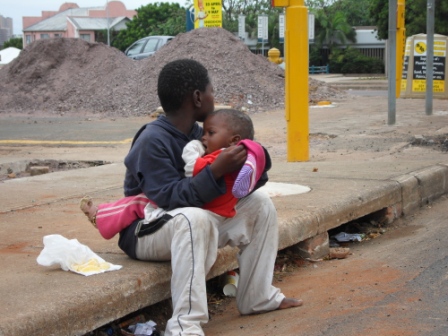
What most soccer fans didn’t see during the World Cup were the many children that live in the streets of South Africa’s cities. That’s because they’ve been rounded up and trucked out of town by police. Nowhere do children complain of more abuse by police than in Durban.
Listen to the 22-minute documentary for CBC Radio’s The Current.
In South Africa, an experiment is underway. A group of social entrepreneurs created a two-year secondary school in the belief that ethical leadership is the key to the continent’s future. The school in Johannesburg turned out its first graduates this summer.
WORK HARD. PLAY HARD.
Substance Abuse on Canada’s Oil Rigs
A veritable army of young men have come from across the country to work on Alberta’s oil rigs. With the long hours and heavy work comes good money – and a variety of ways to spend it. But in an industry with heavy machinery and little oversight, the risk of injury and death goes up with every sleepless night and drug consumed. This report from Grande Prairie, Alberta aired on CBC Radio in 2007.
ERASING HISTORY or DEMOCRATIZING PLACE NAMES?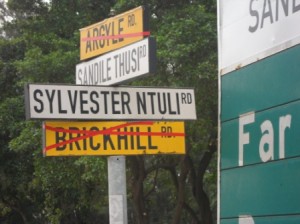
South Africa’s street signs, place names lead to more struggle
South Africa’s icons and street names continue to glorify the achievements of past white leaders. But efforts to dethrone them are meeting stiff resistance. This aired on Public Radio International and CBC Radio in May, 2010.
RACE & FOOTBALL
Racial reconciliation and the World Cup
Sports have long been divided along racial lines. Soccer, the sport watched and played by black South Africans, is being embraced by rugby and cricket-loving whites. Could this lead to reconciliation beyond the pitch? This aired on CBC Radio in June, 2010.

